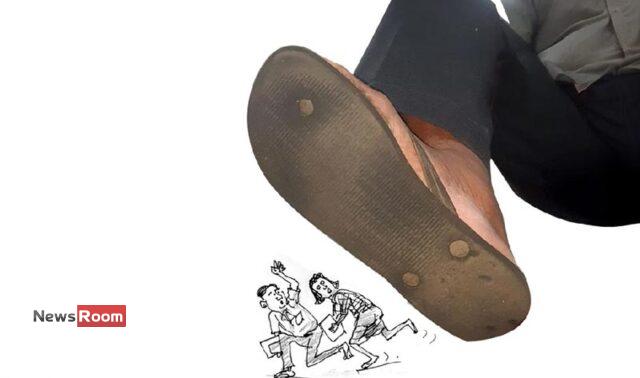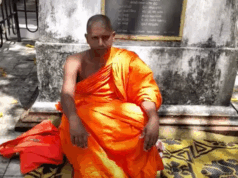Ragging at Sabaragamuwa university has resulted in the loss of another student’s life and there is another incident of barbaric attack on an anti-rag student of J’pura university by some students from the same university. Whether the bullies are backed by political parties or not, they show their undeveloped and conformist minds that need urgent refinement; if they are connected to political parties and student unions, the latter show only their vulgarity and duplicity when they wax eloquent about modern education, culture, decadent politics, human rights, corruption and all that jazz. That this barbarous practice continues in broad daylight and under the very nose of university and law enforcement authorities is deplorable and puzzling to say the least. It is ironic that the best minds, the superstars in academia, the leading lights in education and the guardians of all that is progressive have become helpless spectators of this bullying happening in their universities. The ignominious records of rag victims in our country are a crying shame as all those perpetrators have been from that somewhat musty and largely conservative ‘cream of intelligence’ as they are called at all inauguration ceremonies where their egos are pampered.
Ragging in our universities is a sure sign of the backwardness of our culture and education, in comparison with that of civilized societies. The brutal practice of ragging shows that education in our country, both in schools and universities, has a lot of room for improvement about making the undergraduate population sensitive and sensible, more than ‘educated’. Of course, we can understand torture if it is something which happens in the underworld or in any place where the new recruits must be brutaliesed before they are admitted to their circles, but how can one understand when it happens in the highest seats of academia? Professor O. A. Ileperuma has, in his article “Ragging and loss of life” published in The Island of 5 May 2025, stated that some academics turn a blind eye to ragging perhaps “because they themselves were raggers in the past and see nothing harmful in such sordid instances of ragging”. This is pathetic and may perhaps prove some of the accusations that have been made ad nauseum about the lack of a wholesome education in our university system, which is said to be obsessed with mass producing ‘employable graduates’.
As they say, desperate times call for desperate measures. As far as the ragging culture in our universities is concerned, desperate measures are long overdue. In the highest institutes of learning where knowledge is produced and all the progressive and advanced ideas are supposed to be generated, there has been unfathomable brutality, crudeness and conventionality in the name of an acquired beastliness which they call ‘ragging’ to give it a quasi-academic smell when all it amounts to is lack of refinement which can be linked to numerous reasons.
Most of the culprits are the victims of a system which esteems hierarchy where it is accepted that superiority is synonymous with repressive power and inferiority is another term for meekness and passive acceptance of all commands coming from above. It is a mentality which is based on the warped logic that superiority is absurd if the seniors have no right to snub the juniors. Those who have tasted humiliation in one form or another for long due to reasons inherent in society can grow up to be vengeful. Most of these diehard raggers often show signs of this mentality in the way they behave the minute they have been automatically lifted to their pathetic superiority after one year in the university where they enjoy a mistaken sense of immunity from the law. The widely publicised idea of ‘freedom’ associated with universities and their relative aloofness from the rest of society and the aura they have acquired have made them safe havens for the raggers if the unmitigated brutality in ragging over the long years is any indication. The question is why (oh why?) these learned bullies despise civilised behaviour so much in their enclaves of power merely on the strength of one year’s seniority. If it is their one year’s accumulated knowledge which makes them feel superior to the newcomers in an aggressive way, surely, such knowledge is questionable, which must intrigue educationists, psychologists, sociologists and all academics interested in the role of education in character building.
Raggers have been saying ad nauseam that ragging is given to make the new entrants tough enough for academic work. As we know their methods include using foul language, humiliation, intimidation, physical and psychological abuse, torture, beating and forcing rigorous exercises even leading to death. The resultant trauma has led some to commit suicide. All this is done to help the new students with a proven capacity for hard work in the academic field!
However, there are some pertinent questions to be asked. Is this method of building resilience of potential academics backed by research? Should this ‘programme’ be conducted by senior students (who are apparently mentally unsound)? Aren’t there better qualified people to conduct a civilised programme which would help make the newcomers ready to face the trials of academic life? Do they believe that no refined programme can be as ‘effective’ as their ragging? Why should they spend their valuable time doing it when it can be done by experts in a more organised and civilised manner? Have they ever been cultured enough to discuss this so-called ‘personality development’ programme with the relevant authorities and academics, with any reliable evidence to prove its effectiveness?
As we know, these raggers who are self-appointed ‘experts’ in character building of sorts expect total submission from the juniors they try to brutalise, and those who dare resist this bullying are viciously suppressed. To what extent does this compulsory compliance expected from the new students at the beginning of their academic career help them to be better undergrads?
How much more brutality in ragging is to be endured by the new university entrants for “desperate measures” to be called for?
by Susantha Hewa








